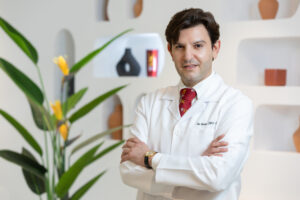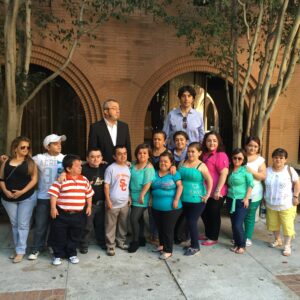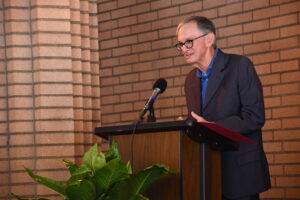A report released today by the National Academies paints a dire picture of American health. Not only do people in the United States die sooner than people in other high-income countries, but American health is poorer than in peer countries at every stage of life – from birth to childhood to adolescence, in youth and middle age, and for older adults.

“The problem is not limited to people who are poor or uninsured,” said Eileen Crimmins, AARP Chair in Gerontology at the USC Leonard Davis School of Gerontology and a member of the National Research Council panel that compiled the report. “Even Americans with health insurance, higher incomes, college education and healthy behaviors such as not smoking seem to be sicker than their counterparts in other countries.”
In contrast to prior research on life expectancy that focused on people over 50, the ten-person panel, chaired by Steven H. Woolf of Virginia Commonwealth University, examined potential health disadvantages among younger Americans — and found that Americans are less likely to make it to age 50 at all.
Deaths before 50 account for about two-thirds of the difference in male life expectancy between the United States and other developed countries and about one-third of the difference in female life expectancy, the report found.
Among the 17 peer countries — all high-income democracies with relatively large populations — examined by the panel, people in the United States are much more likely to die of almost everything, including injury, noncommunicable diseases such as diabetes, and communicable diseases such as HIV.
In particular, among the countries studied:
- Americans are the most likely to die in transportation accidents. The rate of violent death is also significantly higher in the United States, especially death from firearms. Overall, the United States had the second highest death rate from injury (behind Finland).
- Americans are much more likely than people in peer countries to die from maternal conditions related to pregnancy. Since the 1990s, among high-income countries, teenagers in the United States have much higher rates of pregnancy and are more likely to acquire sexually transmitted diseases.
- Though the incidence of AIDS has fallen in the last two decades, the United States still has the highest incidence of AIDS among peer countries. Overall, the United States has the fourth highest mortality from communicable diseases (behind Portugal, Japan and the UK).
- The U.S. has the highest prevalence of diabetes and high rates of obesity, starting in childhood. The U.S. has the second highest death rate from noncommunicable diseases such as diabetes or cardiovascular disease (behind Denmark).
“No single factor can fully explain the health disadvantage we have in the United States,” Crimmins said. “But we must start a national discussion about what investments and tradeoffs Americans are prepared to make for health, and encourage research on the causes of the problem and the strategies and approaches adopted by other nations.”For an interactive chart of how the United States stacks up against peer countries in various causes of death, visit http://sites.nationalacademies.org/DBASSE/CPOP/DBASSE_080393#deaths-from-all-causes.
In their report, the expert panel identifies several likely explanations for the unhealthiness of Americans, including high levels of poverty in the United States and a built environment that is designed around automobiles. In addition, while Americans are currently less likely to smoke and drink less, we consume the most calories per person and have higher rates of drug abuse, the report found.
“This is not a contest with other countries, but a tragedy that Americans are dying earlier and suffering from illness and injury at rates that are avoidable,” said Crimmins. “Americans can have better health, with important implications for the economy and competitiveness.”
For a full copy of the report, “U.S. Health in International Perspective: Shorter Lives, Poorer Health,” visit http://sites.nationalacademies.org/DBASSE/CPOP/US_Health_in_International_Perspective/index.htm#.UOytBbZq7x4.

 With some studies showing that as many as 1 in 10 older adults—with 1 in 2 with dementia—becoming victims of elder abuse, the issue has never been more important to tackle.
With some studies showing that as many as 1 in 10 older adults—with 1 in 2 with dementia—becoming victims of elder abuse, the issue has never been more important to tackle.
 The USC Leonard Davis School of Gerontology welcomed Arlan Richardson as the 36th recipient of the Kesten Memorial Lecture award.
The USC Leonard Davis School of Gerontology welcomed Arlan Richardson as the 36th recipient of the Kesten Memorial Lecture award.






